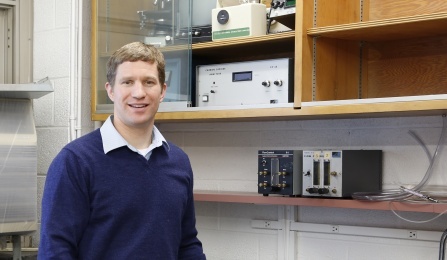Contribution of the Cartoid Body Chemoreceptors & Physical Activity to Heat Stress Compensatory Responses in Heart Failure

These studies will help us understand the pathophysiology that underpins abnormal responses to heat stress in heart failure patients and if physical activity is related to carotid body chemosensitivity in heart failure patients.
Principal Investigator: Blair Johnson
Funding Agency: University at Buffalo Innovative Micro-Programs Accelerating Collaboration in Themes (IMPACT)
Period: 9/1/2015 - 8/31/2016
Abstract: Patients with heart failure have abnormal physiological responses to heat stress, which predisposes them to experience heat-related health events. The carotid body chemoreceptors are traditionally thought of as the primary oxygen sensors in the body. However, these sensors also are activated when exposed to heat and might contribute to the physiological responses to heat stress. Many heart failure patients have chronically active carotid body chemoreceptors. This chronic activation might contribute to their pathophysiology during heat stress. We plan to acutely “turn off” the carotid body chemoreceptors to determine if they contribute to compensatory responses to heat stress in healthy and heart failure patients. We will also determine if chronic carotid body chemoreceptor activation is related to abnormal physiological responses to heat stress.
Physical activity has been shown to improve numerous aspects of heart failure physiology, however it is not known if it improves chronic carotid body chemoreceptor activation in heart failure patients. Furthermore, it is not known if physical activity improves compensatory responses to heat stress. Therefore, we will determine if physical activity is related to carotid body chemosensitivity in heart failure patients and improved physiological responses to heat stress.
Collectively, these studies will help us understand the pathophysiology that underpins abnormal responses to heat stress in heart failure patients and if physical activity is related to carotid body chemosensitivity in heart failure patients.



